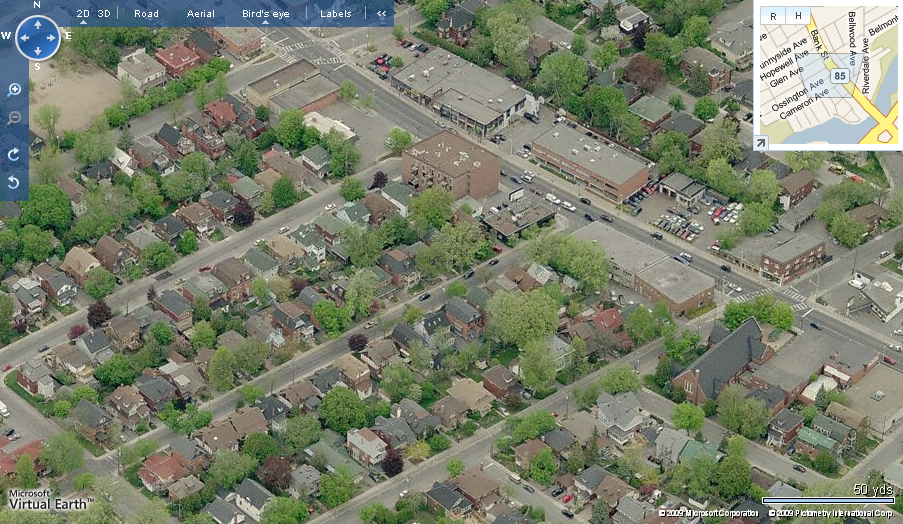It doesn't have sprawl to the same extent as a lot of western North American cities do (try looking at Calgary and Ottawa at the same magnification on Google Maps).I don't think Ottawa really has much urban sprawl. Perhaps in the newer suburbs, but most parts of Ottawa proper I've been through have grid streets, relatively walkable neighborhoods, and small shopping districts within residential neighborhoods.
Ottawa actually has a fair bit of sprawl, unfortunately. Mostly because when our greenbelt was created in the 60s, it set to close a boundary to the core, and the city has spilled over it to create a number of large, very car-oriented neighborhoods in the outskirts. This neighborhood, which is one of the ones I was in, is a good example... it's a very boring and faceless suburb. Don't get me wrong, Ottawa's core is great, but we do have a serious problem with sprawl.
True, but compare nearly any Western North American city to an Eastern one of comparable size, and you're going to see more sprawl in the West (And I mean West distinctly from Pacific, incidentally). It's just different development patterns.
Ottawa's problem, really, is that we don't know what we want to do with the urban space we have. We seem to have trouble making a plan and sticking to it... but I won't vent about local politics, not enough people here care.

I will say, in response to what some of the above people have been saying, is that one of the most interesting differences between Canadian and American cities is that in Canada, the inner city is not only a desirable place to live, but a desirable place to raise families for the middle and upper classes. The majority are still suburban, of course, but a growing segment of Canadians choose to raise families in very urban neighborhoods, mostly because there are many very good inner city schools in Canada. In fact, in my relatively small hometown (~75,000 people), one of the best high schools in the city was one smack dab in the middle of downtown.
The other thing is, Canada has no ghettos. And I mean the technical version of a ghetto, where more than 80% of the population is of one particular ethnic group. Well, the exception might be the fact that there are some "white ghettos", but that's a whole other issue. The bottom line is, Canadians don't tend to be very segregated, which also leads to a lot of mixing between classes and social groups. In my neighborhood, where I can get a one bedroom apartment for $700-800 on the bottom end of the range, there are also people who buy $2 million houses.
What it all adds up to is a very healthy inner-city, for the most part. American cities need to start encouraging the same sort of scenarios if they want to curb sprawl... the best way to stop people moving to the 'burbs is to make the inner city a place they want to live.



